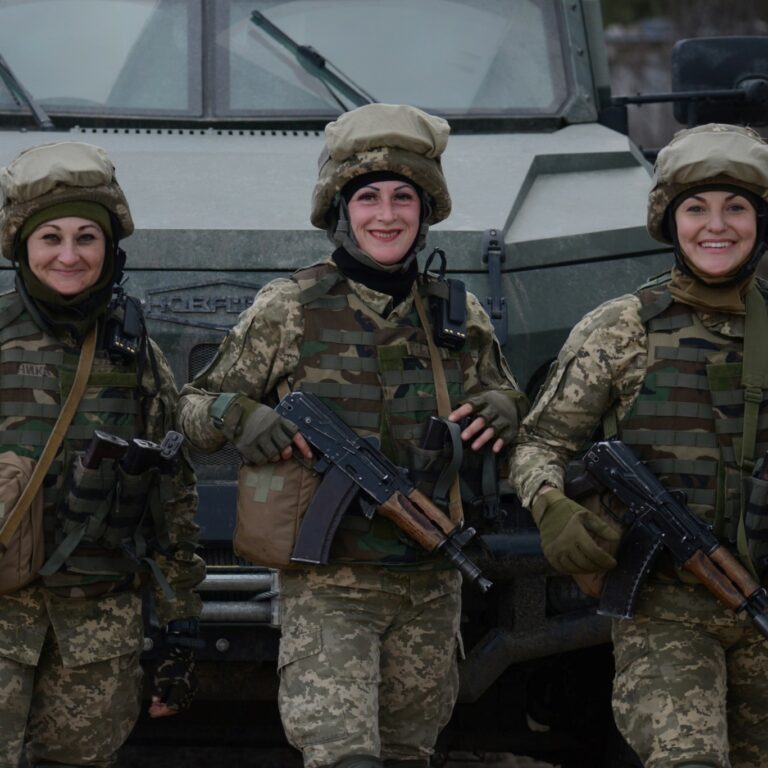
As of December 2021, when the Russian/Ukrainian war was already going on, but the full-scale invasion of the Russian Federation against Ukraine had not yet begun, 57,000 women served in the Armed Forces of Ukraine, almost 22% of the Armed Forces. About 32,000 of them are military personnel (over 12% of the staff). As of 2020, there were 13,000 women combatants in Ukraine. Among the Ukrainian servicewomen are tankers, drone operators, artillerywomen, company commanders, platoon members, etc.
Women also serve in the National Guard of Ukraine (last year 5500, which is around 9%, and more than 360 in senior positions) and the National Police (about 22% women of the total staff). The State Emergency Service of Ukraine employs 11,000 women, which is also one-fifth of the total. At the beginning of the year, women comprised 8% of the Territorial Defense units, which began to be massively replenished in the last months before the war, by civilians of various professions, both men and women.
All these structures are currently defending Ukraine.
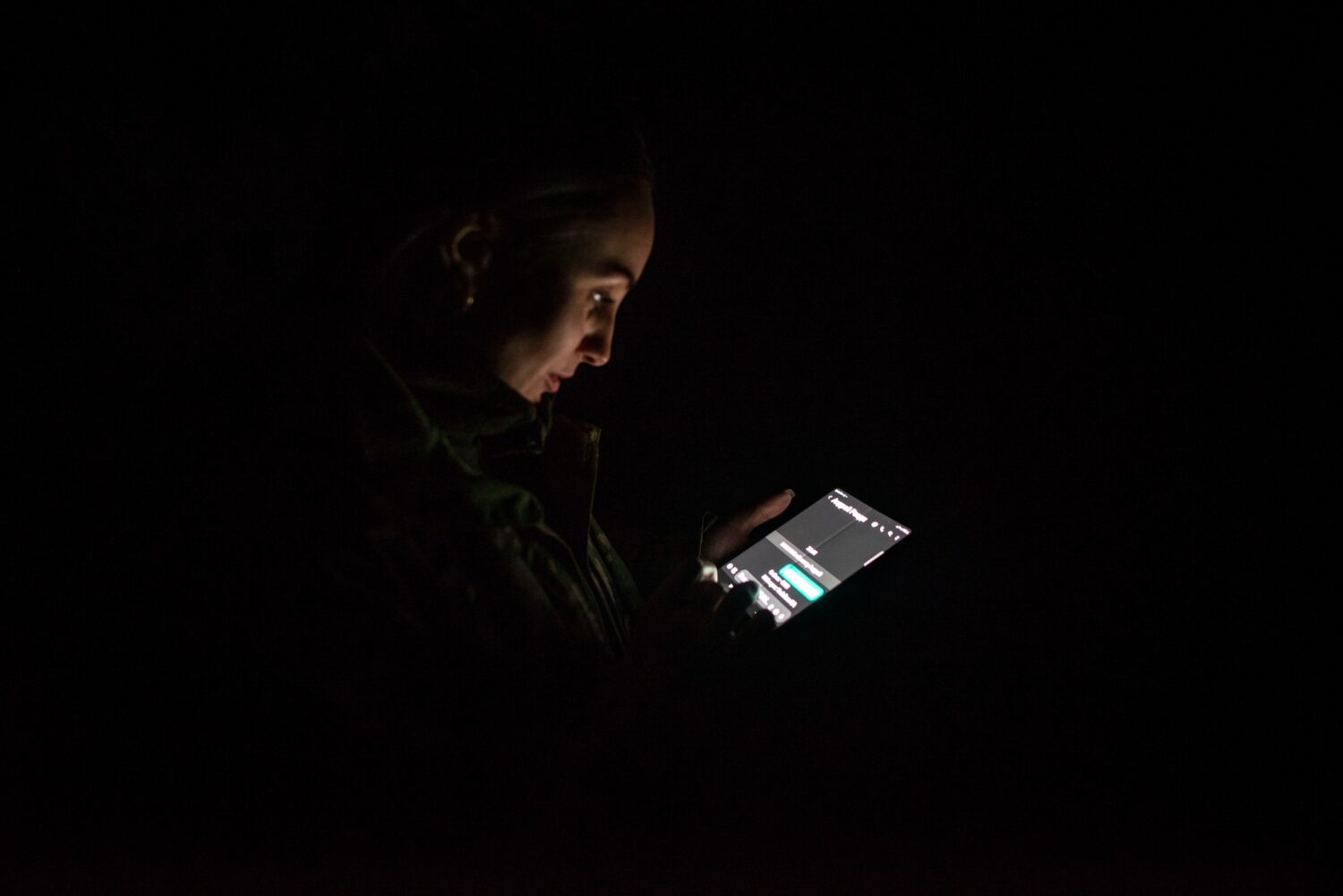
the 93rd Independent Kholodnyi Yar Mechanized Brigade. Oksana helps her colleagues from other units of the brigade to evacuate the wounded to the nearest hospital.
As of today, there is no official information on how many armed women are defending Ukraine, but their share is undoubtedly significant.
In addition, many women writers, artists, musicians, hoteliers, hairdressers, teachers, museum workers, women of many other professions of all ages, including retirees, are doing their best to move the victory over Russian terrorism closer. Women weave camouflage nets, help refugees, prepare food for defenders, deliver food and medicine provided by allied countries from abroad, make Molotov cocktails, translate Ukrainian news for foreign media and more.
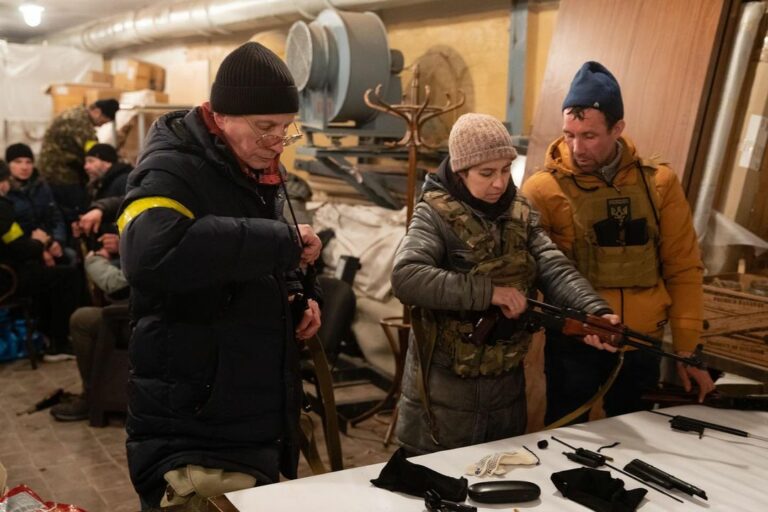
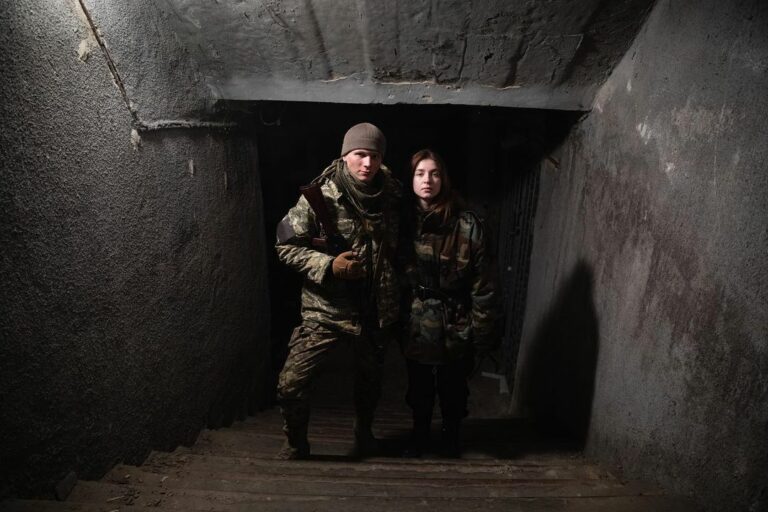
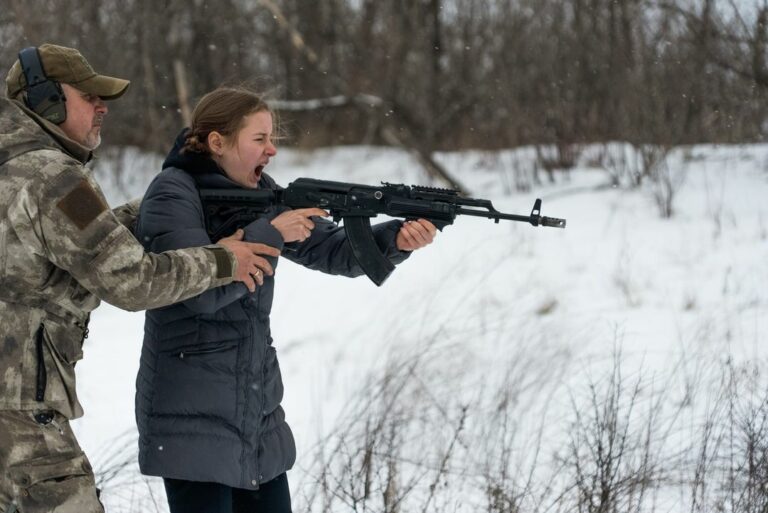
slideshow
Facts:
· The first female officer in Europe was Ukrainian – Olena Stepaniv (1892-1963), who fought in the First World War, commanded the women’s detachment in the Ukrainian Sich Riflemen at the front, and distinguished herself in the battles of Mount Makivka (1915).
· From 2008, when there was no war, and until 2018, when the Russian-Ukrainian war was already going on, the number of women servicemen in the Armed Forces of Ukraine has increased 15 times.
· In 2015, the Invisible Battalion project was launched aimed not only at documenting and researching women’s participation in Ukraine’s war against Russia, but also at eradicating all forms of discrimination in the Ukrainian Armed Forces. As the result of the Invisible Battalion Advocacy Campaign, the list of combat positions for women they actually held in the war was expanded; in 2018 the law of Ukraine “On Ensuring Equal Rights and Opportunities for Women and Men during Military Service in the Armed Forces of Ukraine and Other Military Formations” came into effect.
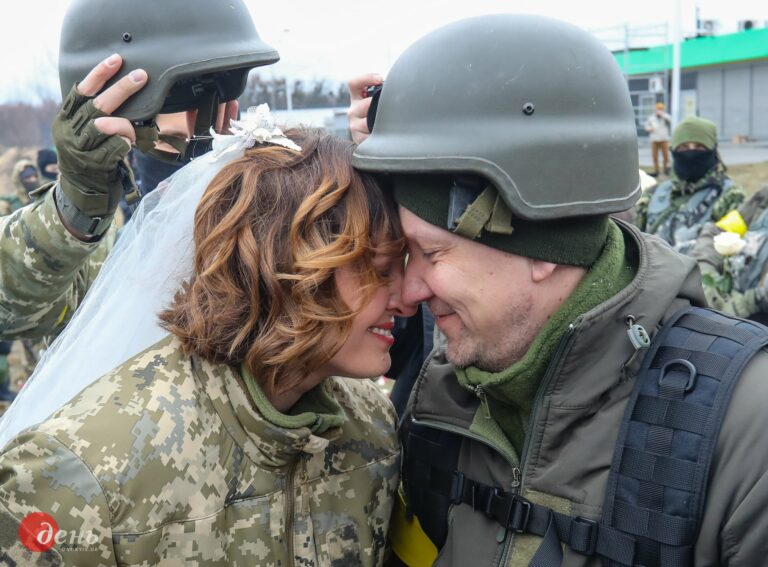
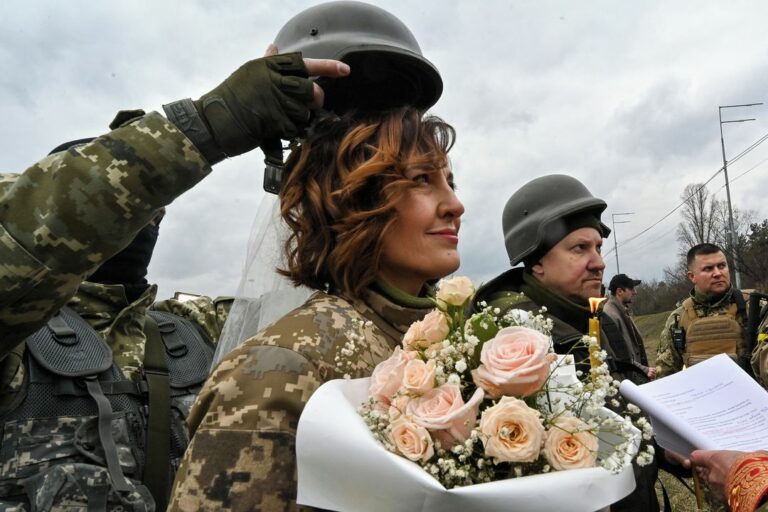
slideshow
· In 2018, the book ‘Girls Cutting Their Locks’ by Eugenia Podobna was published – 25 stories about women defenders of Ukraine (available in English translation).
· Since 2019, the Women’s Veterans Movement has been operating in Ukraine. In 2020-2021 the movement created a video project called ‘Women who died for Ukraine’ a series of 8 documentaries about women who died in Donbas while fighting against the Russian invasion.
· Each year on October 14th, Ukraine celebrates Defender Day. Last year in 2021, it was renamed the ‘Ukraine Defender (men) and Defender (women) Day’. Today, addressing those who defend the country today, the President of Ukraine addresses, both men and women, ‘Dear defenders (men) and defenders (women)’.
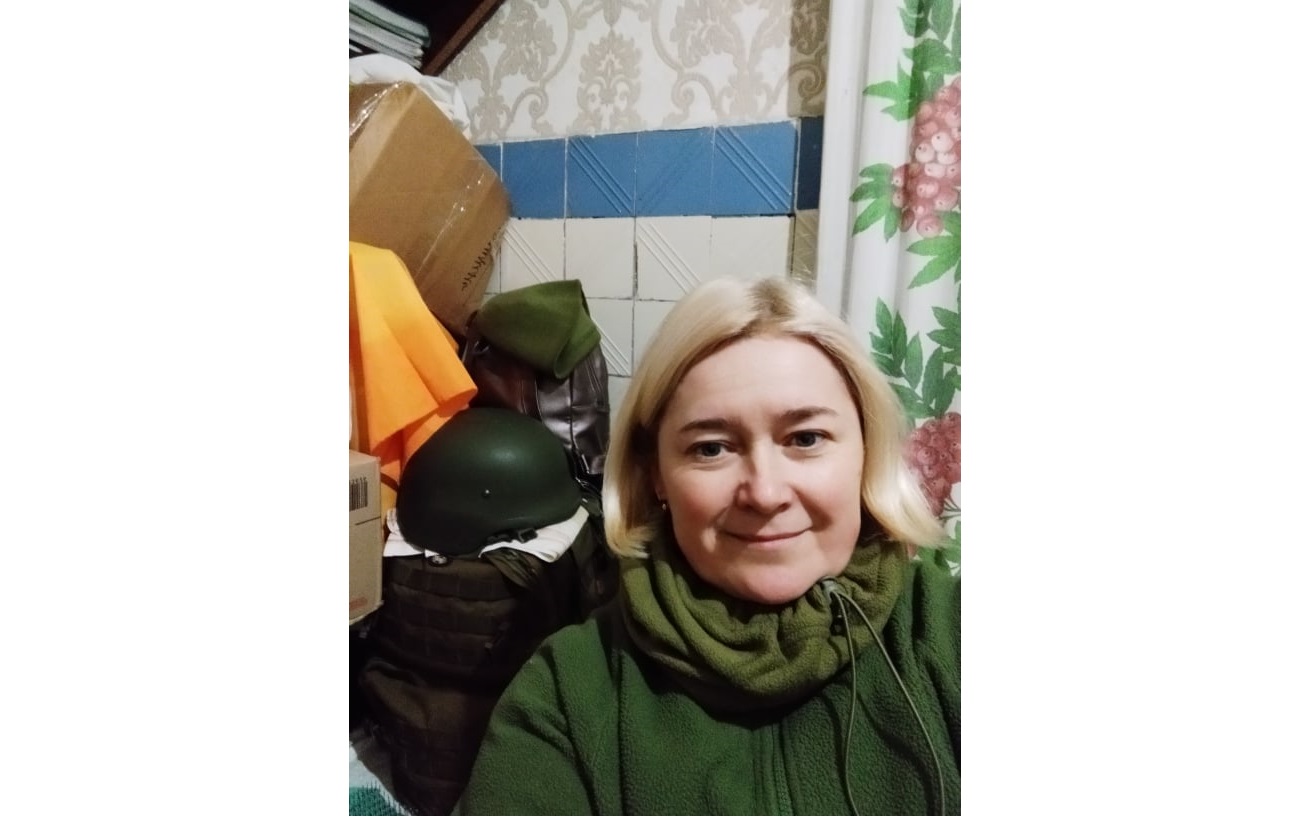
Svetlana Khromalyuk, nurse
— I joined the Armed Forces of Ukraine because I am needed here now. There are so many young fighters in the unit who need professional medical care. You can’t even imagine how they look at me. During the time I am with them (since February 24) we have become one family. We’ve been through cold, hunger, and all sorts of difficulties together. The boys are growing into real men right in front of me. When we got ourselves to a more or less safe place, their first question was “You won’t leave us, will you…?” I’m just speechless…
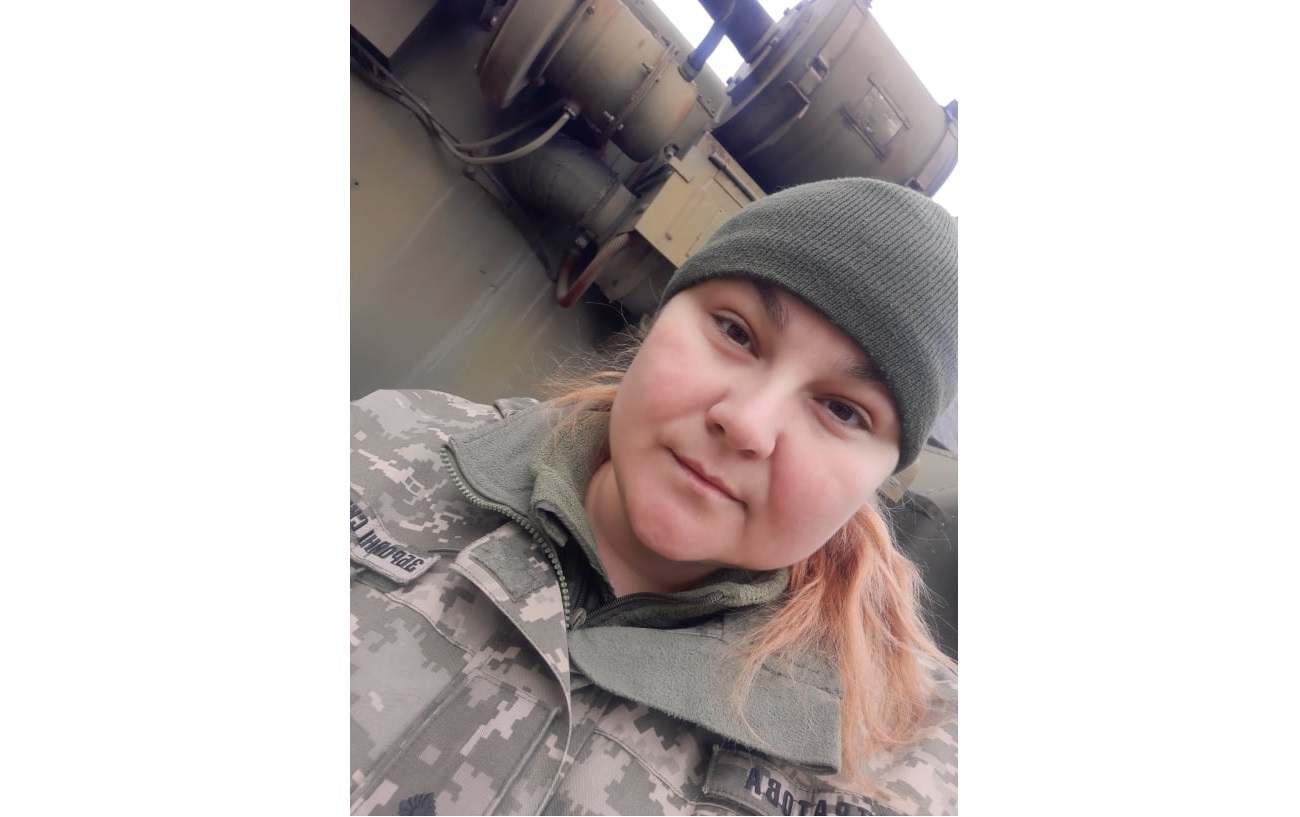
Yulia Yevstratova, officer-psychologist in the Armed Forces of Ukraine, lieutenant
— I am from South Ukraine, many of my relatives live in Crimea, so in 2014, when Crimea was occupied by Russia, I had no choice but to join the Armed Forces to defend my country. Now I’m in the rear, and I start every morning of the war since February 24 with texting my friends from the military in the hotspots ‘How are you?’ and ‘I love you’.
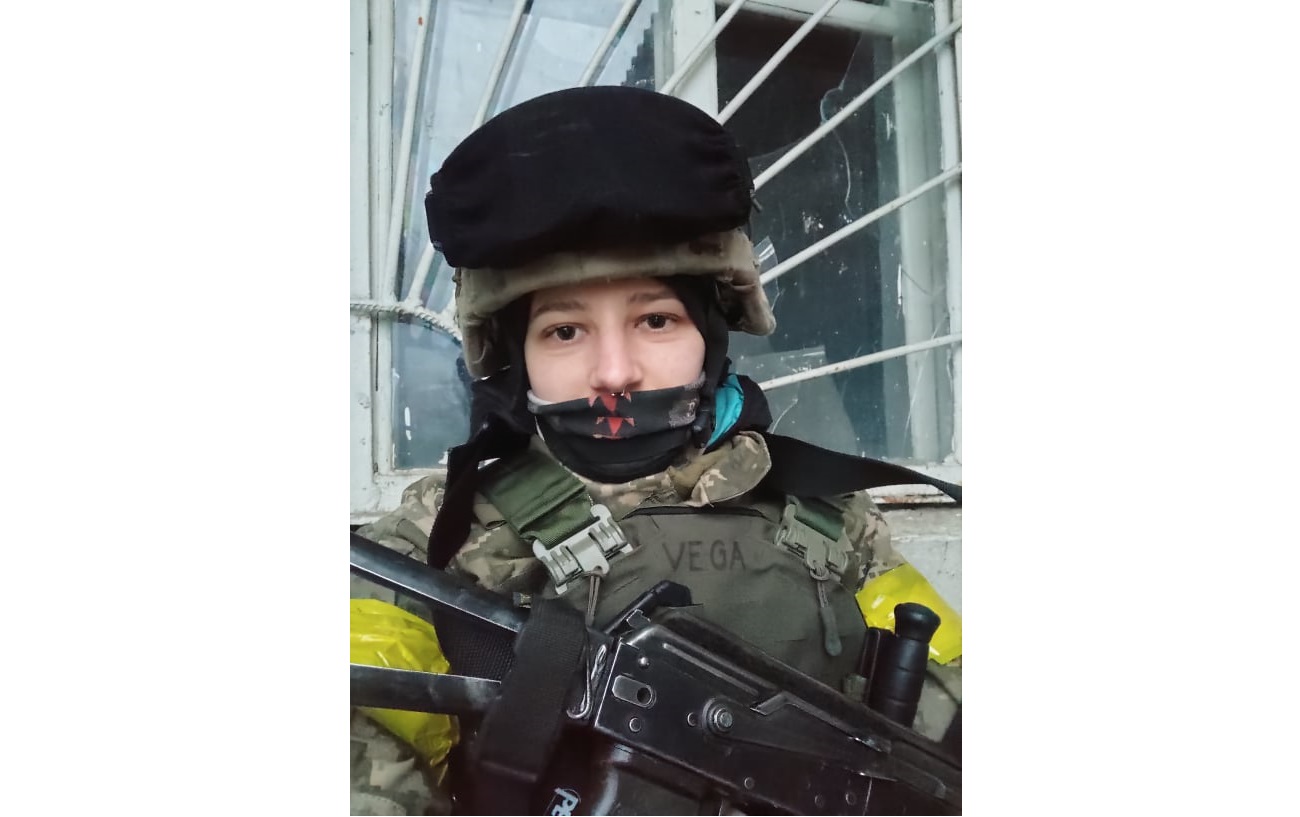
Julia, call sign “Vega”, soldier
— On the first day of the martial law I went to the military commissariat. Now I am mobilized in the Armed Forces of 80 DShV. This move was a logical extension of my time being in the war in 2014-2016, and like most of the volunteers, we were ready to go again when needed. Now I am back with my favorite weapon, RPG-7. Since the beginning of martial law, I have met with more acquaintances, friends and relatives in the army than in all the years after demobilization in 2016.
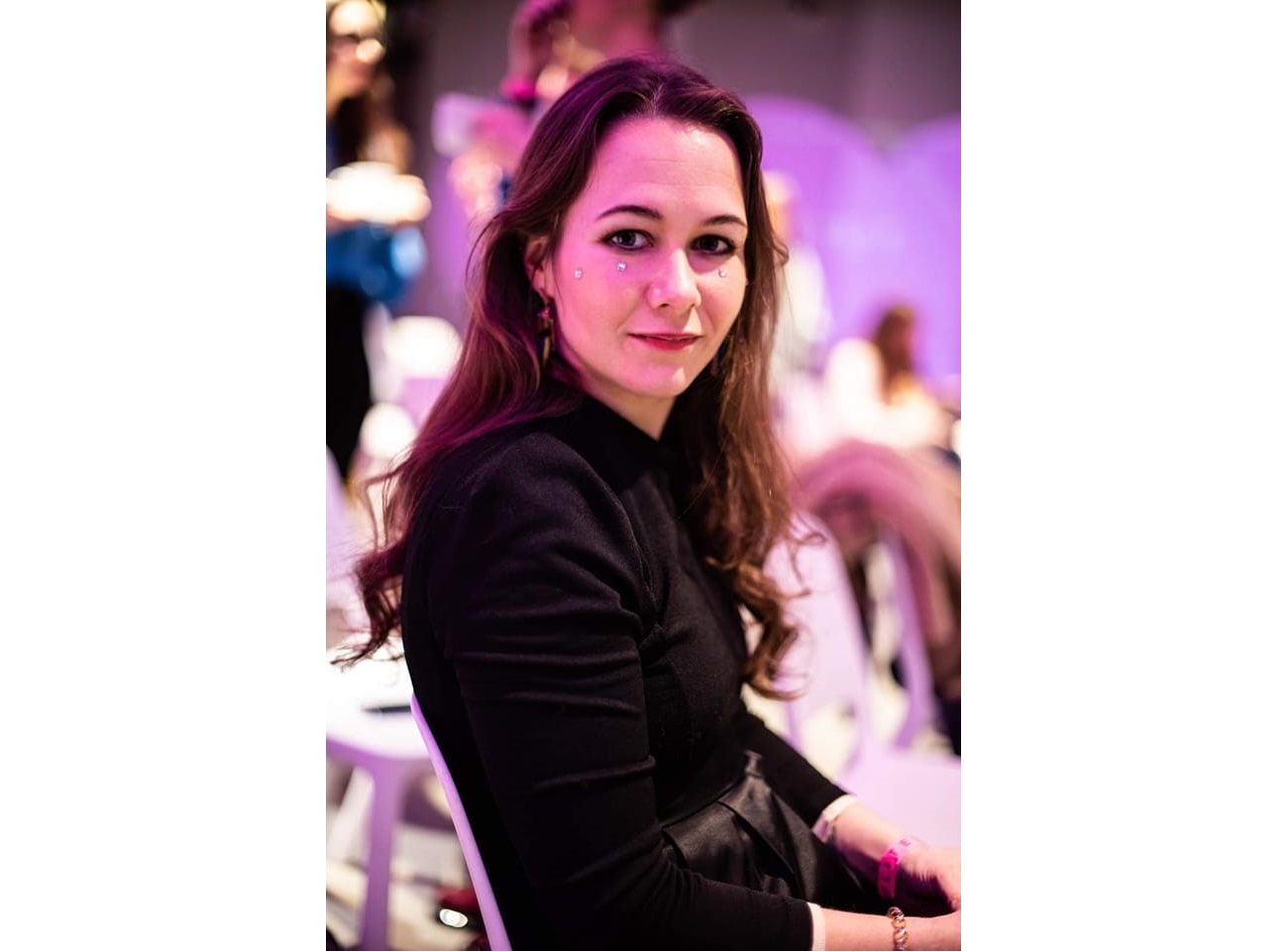
Photo: Tais Yastremska
Bogdana Romantsova, editor, Red Cross volunteer since the beginning of the war
— I put an old woman on a bus. She was crying because all that was left from her house was big fat nothing. A young mother tightly hugged her 5-month old baby with one hand and held a tiny suitcase with the other. A mother with a teenage boy who worried so much about the cat that they took turns carrying. Will they allow this cat to cross the border? How will he be at the border? We saw a father who wanted to go with his wife who was about to give birth. And we honestly told him that a man of his age would not be released abroad. He just stood there, looking around, baffled: “How will she be there without me? She’s going to give birth soon, like really soon, it’s a foreign country, how will she manage by herself all alone?.” I have seen so many tears and hopes these days as I have never seen in all 30 years.
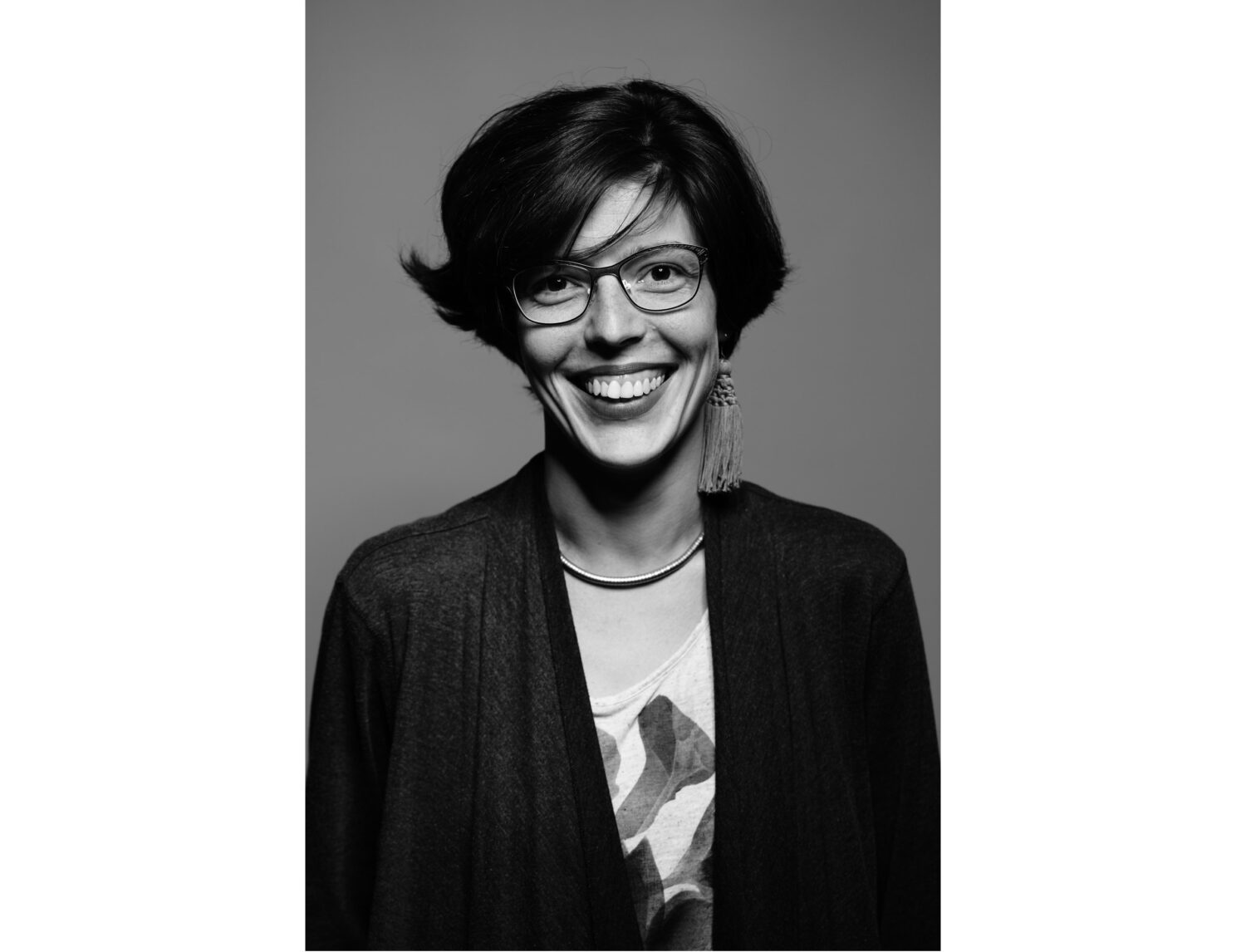
Yevhenia Nesterovych, cultural manager, volunteer. February 28, 2022
— Today at the railway station, we distributed 12 liters of borscht in 7 minutes. Children and mothers were very happy, and the borscht could be given twice more, but their train had already been announced. Our people are very honorable. They say, ‘God bless you,’ they joke, trample, and jump to stay warm. They give up blankets because they may be leaving soon, and hope maybe someone will find them more useful. Thank you for your perseverance. It is a great honor to stand side by side with you.
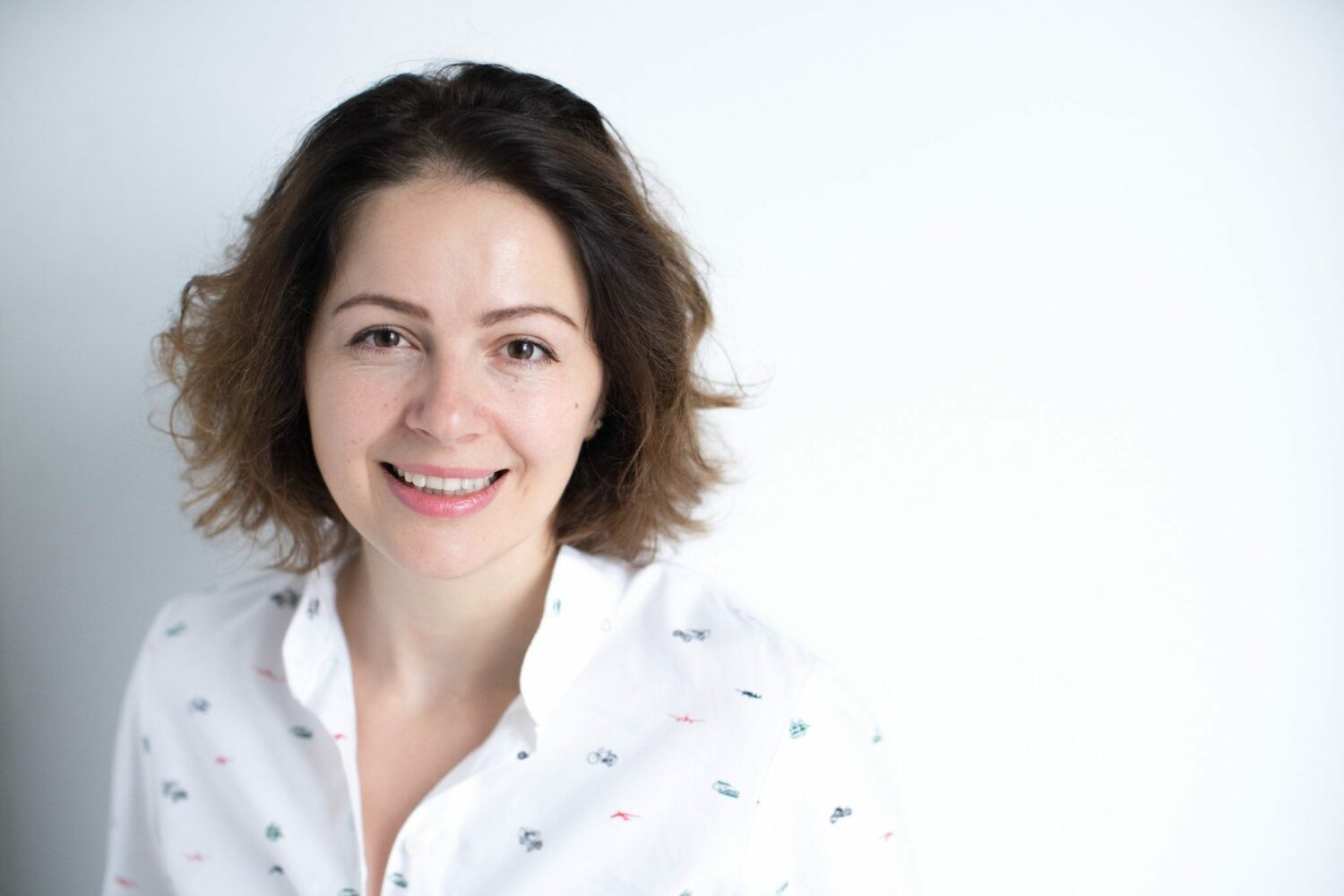
Photo: Olha Zakrevska
Halyna Tytysh, head of the Smart Education NGO, volunteer
— Now children are deprived of the opportunity to learn. And they do not feel safe, which means they cannot learn well. At the same time, they are next to stressed parents, who can’t focus on their kids. So we decided to arrange help meetings for them. Teachers of completely different specialties communicate with children at these meetings, tell them something interesting and exciting. At each meeting the number of participants varies greatly (usually 100-200 children, but sometimes 300-500). New teachers and volunteers join us every day. For example, next week there will be stories for teenagers about the United Nations and SWIFT. This is definitely not a study material, but it is important and interesting for them now. We are also launching an offline art therapy center. We found a school with a bomb shelter and tomorrow we will start these meetings with the first two groups of children.
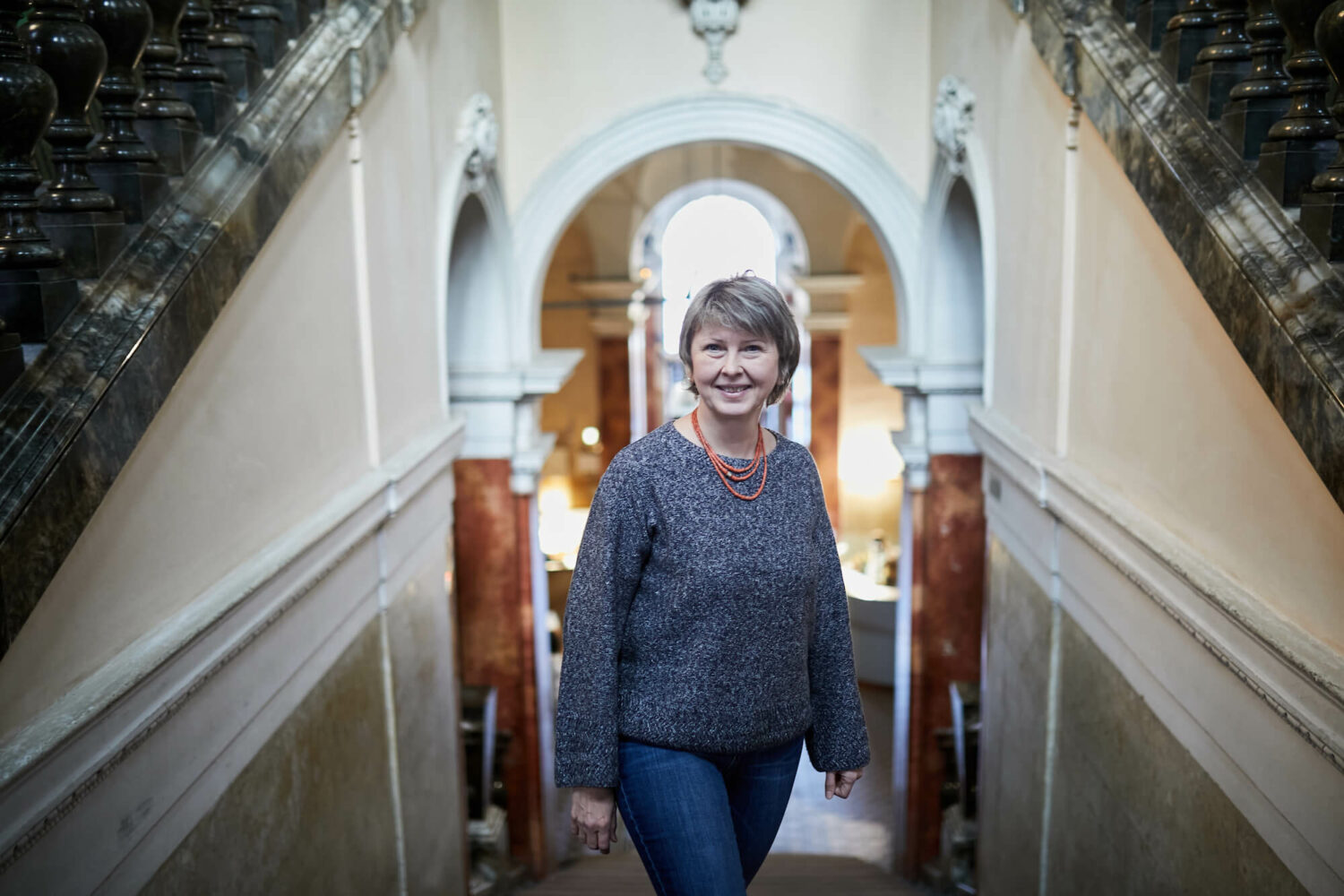
Photo: Katya Akvarelna
Oksana Kis, researcher of women’s history, doctor of historical sciences, volunteer
— For the last two days, I have been volunteering to sort out a humanitarian aid brought by a truck from Poland. While unpacking and sorting those packages, I suddenly realized that they were collected by WOMEN. Different types of baby food for babies of all ages, along with new bottles and pacifiers and other trifles, diapers, wet wipes for babies, baby clothes and toys – no way men gathered all of that. Dishwashing detergents and sponges – were men that thoughtful?
What impressed me most was the huge number of various items of female hygiene (pads and tampons of all types and sizes). Only women could think that their sisters will desperately need these things, and that it is unlikely that refugees saving their lives and the lives of their children, carrying kids and emergency suitcases, will stock up of pads… and how unbearable it will be for them to live through period without pads somewhere in temporary shelters. My heart is filled with gratitude and love and faith in sisterhood, which I, a committed active feminist with 25 years of experience, have never felt. This is the female ethic of care, women take care of everyone (soldiers, the wounded, the old, the sick, children, animals), but men take care of some of them too. Women, and only women, care about other women.

